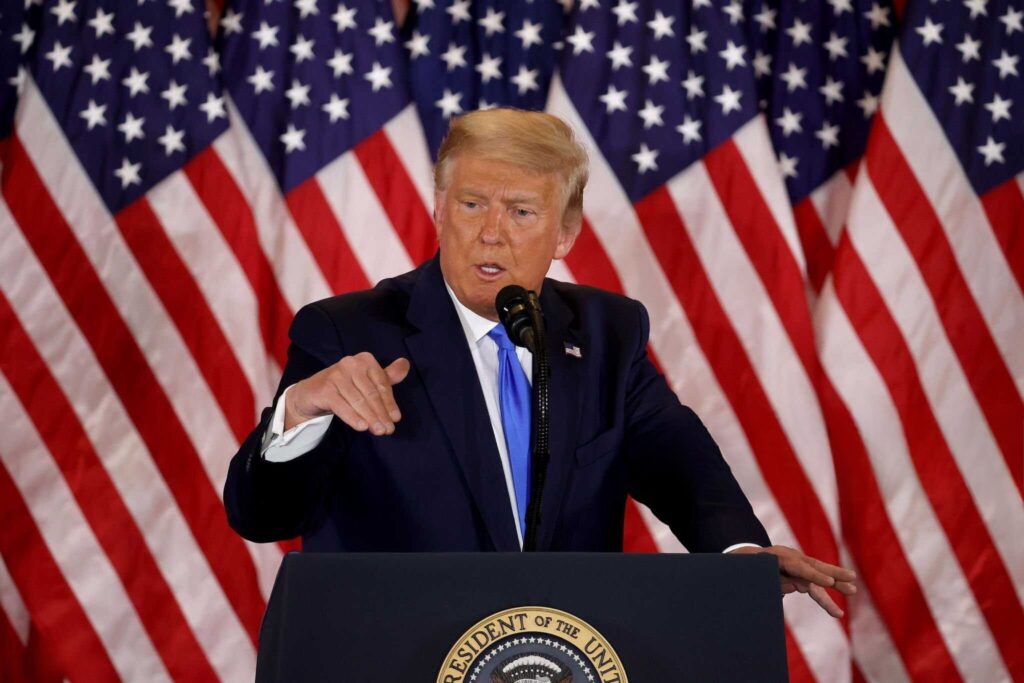White House Labels VOA as “Radical” and “Anti-Trump”
In a bold move to reshape the nation’s media landscape, President Donald Trump has issued an executive order aimed at dismantling Voice of America (VOA), a long-standing, federally funded news organization. The White House has accused VOA of promoting “radical propaganda” and harboring a bias against Trump, which it claims undermines the public trust. The president’s decision is part of a broader attempt to curb what he views as a skewed portrayal of his administration in the media.
The White House statement justifying the move suggests it is a necessary step to “protect taxpayers from funding anti-Trump narratives.” In addition, right-wing media figures and politicians, including Trump’s allies, have voiced support for the decision, calling VOA’s coverage politically charged.
VOA, which primarily operates as a radio service, was founded in 1942 during World War II to counter Nazi and Japanese propaganda. Today, it reaches hundreds of millions of listeners globally each week. However, the organization’s role in delivering unbiased news to international audiences has become a point of contention under the Trump administration.
More Than 1,300 VOA Staff Placed on Leave
In a shocking development, VOA Director Mike Abramowitz announced that he, along with nearly all 1,300 VOA staff members, had been placed on paid leave. The decision has raised alarms about the future of the organization, as it significantly hinders VOA’s ability to perform its “critical mission” of providing accurate information to global audiences. Abramowitz warned that the action comes at a time when America’s adversaries are increasingly spreading disinformation designed to destabilize the country.
The move has sparked significant backlash, with several media and press freedom organizations condemning it. The National Press Club, a prominent advocate for journalists, issued a statement claiming the decision “threatens press freedom” and questioning how an entire newsroom could be sidelined in a matter of hours. “This is more than a staffing decision,” the statement read. “It dismantles an institution and jeopardizes independent journalism at VOA.”
Trump Targets US Agency for Global Media (USAGM)
The president’s order also targets VOA’s parent company, the U.S. Agency for Global Media (USAGM), which oversees several other international news outlets, including Radio Free Europe and Radio Free Asia. The directive mandates USAGM to “reduce performance to the minimum level required by law,” a move that could severely undermine the agency’s ability to operate effectively.
In an email to VOA employees, USAGM’s human resources director Crystal Thomas announced the drastic changes. According to reports, freelance workers and international contractors were told their funding had been abruptly cut. The email also revealed that both Radio Free Europe and Radio Free Asia had their federal grants revoked, casting a shadow of uncertainty over their continued operations.
Czech Foreign Minister Jan Lipavský expressed concern over the future of Radio Free Europe’s Prague office. He urged the European Union to take action to support the network’s operations and planned to raise the issue with EU foreign ministers.
Elon Musk and Other Supporters Back VOA’s Closure
Elon Musk, the billionaire entrepreneur and close Trump adviser, has publicly called for the closure of VOA. Musk, who has frequently used his platform X (formerly Twitter) to express support for Trump’s policies, joined the chorus of voices advocating for the dismantling of the international broadcaster.
In addition to targeting VOA, President Trump has made sweeping cuts to federal agencies, including those addressing homelessness and supporting public libraries and museums. The president’s criticism of VOA is not new. He has long accused the organization of promoting narratives that do not align with his political agenda, and he recently appointed Kari Lake, a staunch Trump supporter, as a special adviser for USAGM.
The History and Future of VOA
Voice of America was created during World War II as part of the U.S. government’s effort to provide truthful information to international audiences amid the rise of Nazi and Japanese propaganda. Its mission evolved over the years to include not only counter-propaganda efforts but also the provision of unbiased news and information to countries with restricted access to independent media.
In 1976, President Gerald Ford signed the VOA Charter, which aimed to ensure the organization’s editorial independence. The law specifically prohibited VOA from being influenced by U.S. government officials, protecting its role as a global news source. In 1994, oversight of VOA and other U.S. international broadcasting entities was transferred to the Broadcast Board of Governors. A 2013 law allowed VOA to begin broadcasting domestically within the U.S.
However, recent political shifts and the current administration’s criticism have led to questions about the future of the organization. Critics argue that the push to limit VOA’s operations could have significant consequences for U.S. credibility on the world stage and damage the nation’s commitment to a free press.
What’s Next for VOA and U.S. Media?
As the situation continues to unfold, the fate of VOA and other media outlets under USAGM’s purview remains uncertain. Experts warn that the move to reduce funding and restrict the organization’s independence could pave the way for greater government control over U.S. media outlets. This is a developing story that will likely have far-reaching implications for the future of press freedom in the United States and abroad.


